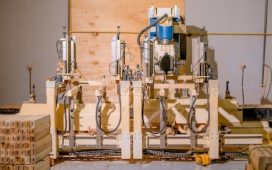
A high-efficiency boiler uses the latest in technology to heat your home. While it might seem like a modern appliance, a boiler is older than you might think. In fact, the first types of boilers were introduced more than 150 years ago. Boilers provide heat by distributing heated water or steam through radiators or radiant floor systems.
Boilers can heat water to a high temperature, allowing your heating system to run less often. A traditional boiler must generate steam at high temperatures, which means your heating system must run more often.
High-efficiency boilers reduce energy use in homes by 20% or more. Energy costs are on the rise, and homeowners should find ways to cut their costs. Working with high-efficiency boilers (such as Viessmann boilers) is a great way to start.
Getting to Know the Boiler
The boiler that’s best for your home will depend on its intended use.
- A combi boiler heats water on demand, so it only heats water when you need it. This boiler is compact, making it easy to install. A combi boiler is a sealed unit, so there’s not much maintenance required.
- A regular boiler heats water and stores it, so it’s a larger unit. If you have a large family, a regular boiler may be better for you. Regular boilers heat water continuously, and if there’s a problem with them, it could be costly to repair.
- A system boiler heats water not only on demand but also stores it for later use. If you have a boiler with a hot water cylinder, it’s likely a system boiler.
- A heat-only boiler heats water but does not store it. If you have a heat-only boiler, you’ll need to add a separate hot water cylinder.
Things to Keep in Mind Before You Buy a High-Efficiency Boiler
The most efficient boiler is the one that matches your home’s heating needs. A boiler that’s too large for your home will waste energy, and a boiler that’s too small will work harder and cost more to run.
The efficiency of your boiler can have a significant impact on your gas bills and the size of your carbon footprint. Most new boilers are highly efficient, but if you’re replacing an old boiler, it’s essential to check efficiency ratings before making a purchase.
Boilers need to be vented by either an external flue or the flue from the chimney if located in a house. If they’re vented through an outer duct, they need to be located in an open area that allows them to collect air to use. If they’re vented directly through the flue, they can be located in a smaller, closed space.
Another consideration is your budget. High-efficiency boilers cost a lot higher than standard ones. However, replacing your boiler with a high-efficiency model can save hundreds of dollars each year in energy costs. If you need insurance cover for your new boiler, you can get it here.
High-Efficiency Boiler Advantages
The efficiency of a boiler is measured by the Annual Fuel Utilization Efficiency (AFUE). This rating for boilers measures how much energy is used to boil water and produce heat. The higher the AFUE, the more efficient the boiler, and the lower the fuel costs. Your boiler is a workhorse in your home, and when it runs inefficiently, it wastes energy and money.
Many high-efficiency boilers have Weil-McLain 95% AFUE ratings, which earn them Energy Star designations. Energy Star is the government’s program dedicated to reducing energy use in homes and businesses.
For homeowners with limited space, high-efficiency boilers may be a good option. They reduce the need for ventilation, so a chimney may not be necessary. Finally, because these boilers use less fuel, they emit less smog.












